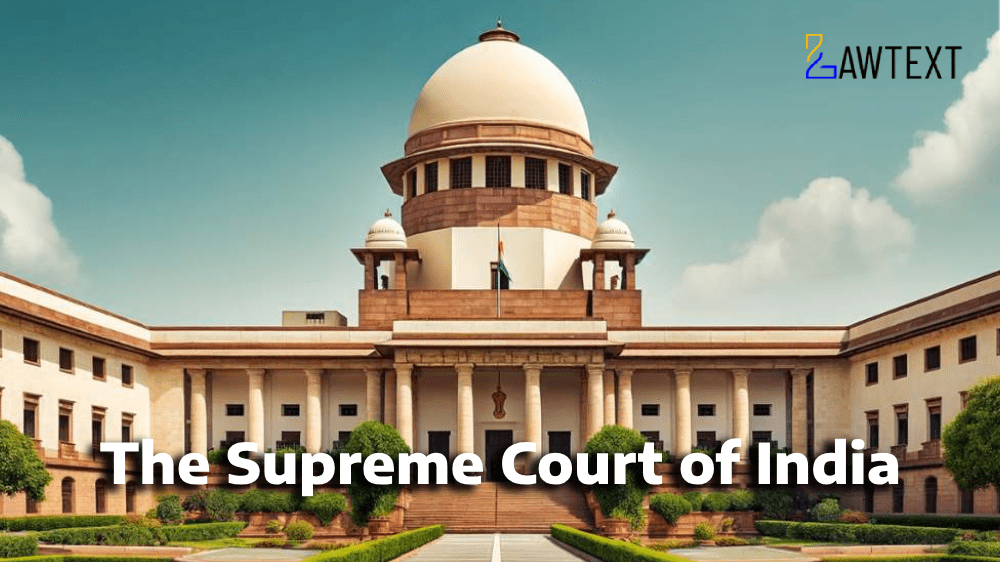CASE NOTE & SUMMARY
Issuance of Summons Without Mandatory Inquiry Under Section 202 Code of Criminal Procedure, 1973 (CrPC) Held Vitiated – No Presumption Against Editorial Director Under Press and Registration of Books Act, 1867 – Defamation Complaint Based on Self-Estimation Without Third-Party Perception Not Maintainable – Freedom of Press Emphasized While Cautioning Against Irresponsible Journalism
The Supreme Court quashed the defamation proceedings against the appellants, holding that: Non-compliance with Section 202 CrPC invalidated the summoning process, as the Magistrate failed to conduct an inquiry before issuing summons to accused residing outside his jurisdiction. No statutory presumption existed against the Editorial Director under the Press and Registration of Books Act, 1867, since he was not named as an editor in the publication’s imprint. Defamation under Section 499 IPC requires third-party perception of harm, which was absent in this case. The complaint was based on the complainant’s own perception without evidence of actual reputational loss. Journalistic Freedom Upheld – The court reaffirmed the importance of press freedom under Article 19(1)(a) COI, cautioning that responsible journalism must balance public interest with accuracy.
Held:
The Supreme Court quashed the criminal proceedings against all appellants and set aside the summoning orders issued by the Magistrate, holding that the complaint was legally unsustainable. (Para: 14-22)
Acts and Sections Discussed:
- Constitution of India (COI) – Article 19(1)(a) (Freedom of Speech and Expression)
- Indian Penal Code, 1860 (IPC) – Section 499 (Defamation), Section 500 (Punishment for Defamation)
- Code of Criminal Procedure, 1973 (CrPC) – Section 200 (Examination of Complainant), Section 202 (Postponement of Issue of Process), Section 482 (Inherent Powers of High Court)
- Press and Registration of Books Act, 1867 – Section 5 (Publication Rules), Section 7 (Presumption Against Editor)
Subjects:
Defamation – Summoning Process – Press Freedom – Criminal Proceedings Quashed – No Third-Party Evidence – No Presumption Against Editorial Director – Procedural Non-Compliance – Mandatory Inquiry – Public Interest Reporting – Fair Journalism – Self-Estimation Not Defamation
Facts:
- Nature of the Litigation: The case involved multiple criminal appeals challenging the initiation of defamation proceedings against journalists and the Editorial Director of a media company.
- Who Is Asking the Court and for What Remedy?: The appellants, including Jaideep Bose (Editorial Director) and various journalists, sought quashing of the complaint and summoning orders issued by the Magistrate for criminal defamation.
- Reason for Filing the Case: The complainant, an auction house, alleged that certain news articles published in The Times of India and Economic Times defamed its reputation by questioning the authenticity of the paintings auctioned.
- What Had Already Been Decided Until Now?: The High Court of Karnataka dismissed the quashing petitions for individual journalists but quashed the complaint against the media company. The appellants approached the Supreme Court challenging this decision.
Issues:
a. Whether the issuance of summons was vitiated due to non-compliance with Section 202 CrPC, given that the accused resided outside the jurisdiction of the Magistrate?
b. Whether the Editorial Director could be presumed responsible for the content under the Press and Registration of Books Act, 1867?
c. Whether a defamation complaint can be sustained without evidence of reputational harm in the eyes of third parties?
d. Whether the news articles were published in good faith and in the interest of public discourse?
Submissions/Arguments:
-
Appellants’ Arguments:
- The complaint lacked specific allegations against the Editorial Director, who was not responsible for selecting content.
- The Magistrate failed to conduct the mandatory inquiry under Section 202 CrPC before issuing summons.
- The complaint was based on self-estimation of harm, without third-party perception of reputational damage, making it unsustainable under Section 499 IPC.
- Freedom of press must be protected, and mere factual reporting of public controversies cannot be defamatory.
-
Respondent’s Arguments:
- The news articles were defamatory as they cast doubt on the authenticity of the paintings auctioned.
- The summons were validly issued, and the role of the accused in publishing the articles was sufficiently established.
- The trial court’s order was in line with settled legal principles, and the case should proceed to trial.
Ratio Decidendi:
- Summons Issued Without Inquiry Under Section 202 CrPC is Invalid – When the accused resides outside the Magistrate’s jurisdiction, compliance with Section 202 CrPC is mandatory. Failure to conduct an inquiry renders the summoning order illegal.
- Editorial Director Cannot Be Presumed Liable – Under the Press and Registration of Books Act, 1867, only the "Editor" is presumed responsible for content selection, not an Editorial Director, unless specific allegations establish direct involvement.
- Self-Perception of Harm is Not Defamation – Defamation under Section 499 IPC requires reputational harm in the estimation of others. Mere self-estimation without evidence of public perception does not constitute defamation.
- Freedom of Press Prevails – Fair journalistic reporting, especially when based on public domain materials and expert opinions, does not amount to defamation. Courts must carefully balance defamation claims against press freedom.
Citation: 2025 LawText (SC) (2) 180
Case Number: CRIMINAL APPEAL NO. 814 OF 2025 (Arising out of SLP (Crl.) No. 10212 of 2024 WITH CRIMINAL APPEAL NO. 815 OF 2025 (Arising out of SLP (Crl.) No. 13443 of 2024 WITH CRIMINAL APPEAL NO. 816 OF 2025 (Arising out of SLP (Crl.) No. 15653 of 2024 WITH CRIMINAL APPEAL NO. 817 OF 2025 (Arising out of SLP (Crl.) No. 16153 of 2024
Date of Decision: 2025-02-18
Case Title: JAIDEEP BOSE VERSUS M/S. BID AND HAMMER AUCTIONEERS PRIVATE LIMITED
Before Judge: [J.B. Pardiwala J. , R. Mahadevan J.]
Appellant: JAIDEEP BOSE
Respondent: M/S. BID AND HAMMER AUCTIONEERS PRIVATE LIMITED

